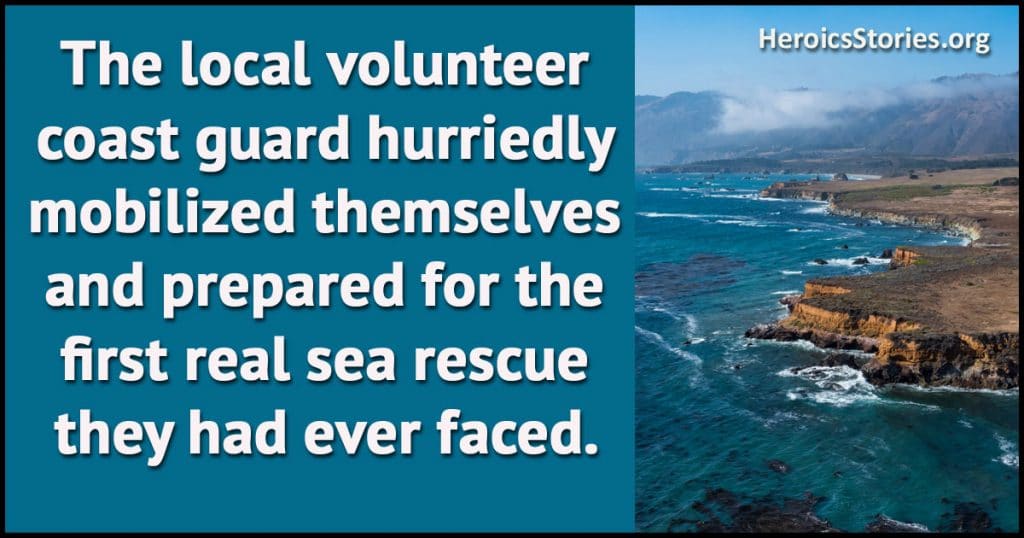By John Coutts
Shetland Isles, Scotland

I grew up in the 1950s, a time when most of the western world was obsessed with the threat of communism. The McCarthy era in the USA had made everyone twitchy. Even on the tiny remote island where I lived, in the far north of Scotland, we knew all about the possibility of “Reds under the beds.”
No doubt it served to confirm the perceived communist conspiracy when fishing boats from the Soviet Union started to arrive in Scottish waters in ever-increasing numbers. By the late 1950s there were always hundreds of Soviet trawlers lying anchored close inshore around most of the inhabited islands.
For a young boy it was fun. The long dark winter nights were lit by dozens of flashing searchlights that raked the shoreline all night long. The summer days were a constant blast of pop music played on every deck loudspeaker of every ship within miles. It must have been intimidating for older people, but I was oblivious to all that.
Then one January night in 1962, when islanders were just sitting down to their early evening meal, the sharp explosion of marine distress rockets was heard above the rising howl of the force-10 gale outside.
The local volunteer coast guard hurriedly mobilized themselves and prepared for the first real sea rescue they had ever faced. A Soviet trawler had dragged her anchor and struck the cliffs close to where I lived. They rescued 12 men, including the captain, by breeches buoy before the ship sank. The other 12 were rescued by a lifeboat from another Soviet trawler.
The men were dispersed in two’s and three’s throughout the houses on our island. All of them were soaking wet and cold. They had lost everything they had except their lives.
That night they listened to Radio Moscow on our old valve radio. They joked and laughed and shook our hands often. They showed us damp photographs of wives and children, and they dried out packs of cigarettes which they insisted on sharing with everyone. Some of them could speak some English. Even when they had nothing left to give, gesture or say — they still smiled.
All I could think was: “Here were the communists and they were warm and friendly, joking and generous — not dark, evil and menacing,” as I had been told they would be.
The following morning a small Soviet lifeboat docked at our little jetty to take the men away. Before leaving, the captain turned to us children and handed us each a small coin from his pocket saying, “Keep this coin and remember the night the ship was wrecked on your island.” I still have that coin, a simple 15 Kopek piece.
I don’t know what happened to him or the other men, but I sincerely hope they were not punished for losing their ship. The lessons they taught an 11-year-old boy that night about kindness, warmth and friendliness have never been forgotten.
Podcast: Play in new window | Download (Duration: 4:15 — 5.0MB)


.
***** We are all the same *****
* What I see:
People, just like me. And you.
Doing what people like me and you would do.
* What I know:
There is no difference in people, everywhere.
Except those caused by indoctrination by their own
parents, politicians and religion.
To hate other people who are, really, like them.
Lovely poem, Michael. And very fitting. Who is the author?
Reminds me of my time in the Marines when we were training to go on a Joint Service mission to Guantanamo Bay to assist in guarding Cuban migrants who were waiting to be processed by INS.
We had trained for months in full riot gear: body length shields, face masks, batons, the works. We were doing crowd control tactics, among other training.
When we arrived at Guantanamo, we were in “tent city”, with all the Cubans in a gated, guarded area in open tents with cots. As Marines, we were required to be armed at all times.
Yet, the vicious migrants for which we were training were nowhere to be found. The men we met would show us their ship in a bottle, pictures of family, stories of how they swam to here, and how they hoped to start a new life in America and someday, bring the rest of their family here. They would sneak cups of juice from the mess to give to us, and share their cigarettes. They couldn’t have been nicer. This wasn’t being “fearful nice” because we were armed. They were just regular people wanting a new life and genuinely wanting to chat to others. When they were called to be interviewed and would finally begin processing to go to mainland America, they would walk all around the camp, saying goodbye to all the friends they met in their time in Gitmo.
Yes, it’s the job of the military to be prepared, so it’s understandable why we trained as we did, and yes, there could have been a situation, but it was nice that there wasn’t.